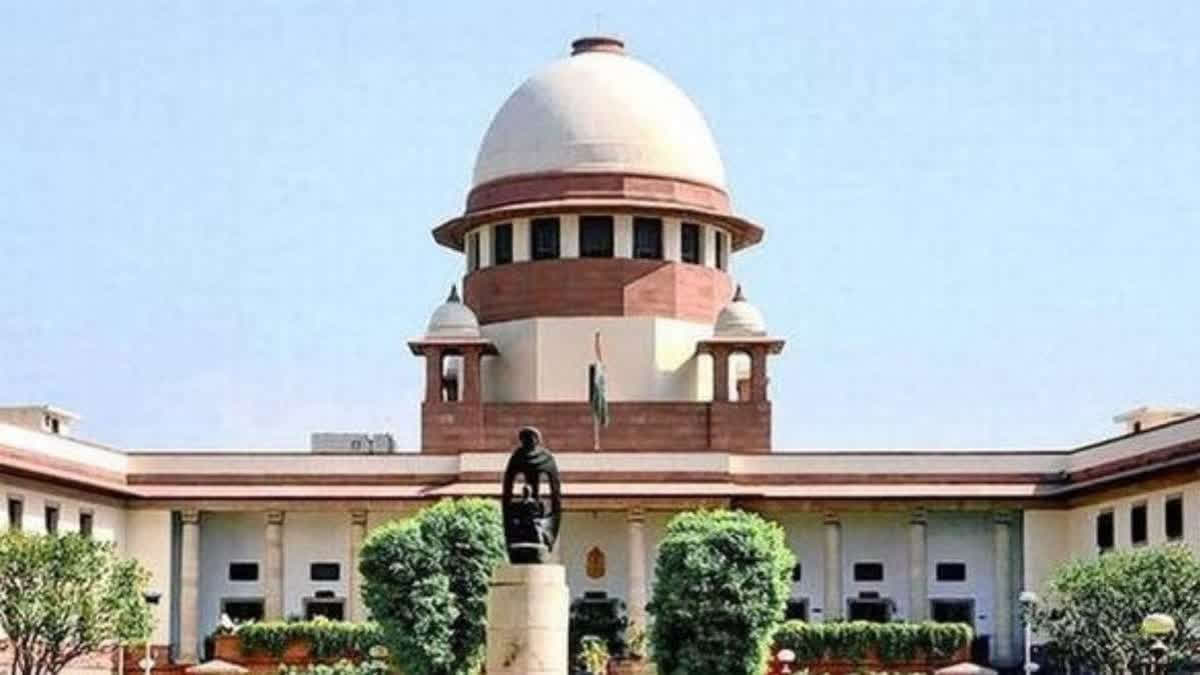New Delhi: The Supreme Court has dismissed an appeal by a man challenging a high court order, which set aside the conviction and sentence of imprisonment for life of six accused charged with murder of the complainant's son, saying the complainant happens to be the most interested witness being the father of the deceased.
A bench comprising Justices Abhay S Oka and Pankaj Mithal said: "It may not be out of context to mention that the appellant/complainant, a sole eyewitness, happens to be the most interested witness being the father of the deceased and having long enmity with the group to which the accused persons belong, therefore, his testimony was to be examined with great caution and the High Court (Punjab and Haryana) was justified in doing so and in doubting it so as to uphold the conviction on his solitary evidence”.
The bench, in its judgment delivered on December 14, noted that complainant, Chhote Lal, happened to be the sole eyewitness but he had neither seen anyone killing his son Kishan Sarup nor he had deposed that he had seen anyone burning the victim, Kishan Sarup.
The bench said the complainant is not actually an eyewitness either to the killing or to the burning of his son, though he may be an eyewitness to the incident which took place on November 4, 2000, at 7 pm. According to the complainant, a car had chased their motorcycle, pushed them towards the roadside making them fall in the bushes, later the occupants of the car assaulted the deceased and then took him away in an injured position in the car.
"It may be noted that he has not deposed anything as to why he had not tried to intervene and save his son from assault or stop the accused persons from taking him away in the car. He himself had not received any injuries", said the bench.
The bench observed that the statement that he could not do so on account of the threats extended by the accused persons appears to be a bald statement as no one in a situation where his son is being assaulted and carried away would remain a mere spectator. "The appellant/complainant stated in the FIR that the accused assaulted his son with a knife and iron rod. He didn't mention about the use of a pistol by the accused. However, the police have recovered the empty cartridge. Cause of death as per postmortem is also firing from close range", said the bench.
The apex court noted that there is no dispute to the fact that there was serious enmity between the two rival groups which were in fact interrelated.
The dispute between the two groups was quite old, commencing in the year 1986 in connection with the access to the public road which was being blocked by one party. The said dispute was compromised but still continued to persist which resulted in the murder of Ram Kishan. In retaliation, it appears that the rival group killed Kishan Sarup.
The sole submission of the counsel for the appellant was that in matters where the accused persons are convicted and sentenced by the trial court, the appellate court is normally slow in upsetting the conviction, more particularly in the light of the evidence on record, especially, that of the eyewitness (complainant).
Dismissing the appeal, the apex court said: "The conviction has to be based on the evidence which proves the accused guilty beyond reasonable doubt. The prosecution in this case has failed to prove the guilt of the accused both by circumstantial evidence and by means of evidence of the eyewitness".
The top court said that in respect of circumstantial evidence, the chain of events is not complete whereas the presence of an eyewitness is also doubtful. "
Thus, we are of the opinion that the view taken by the High Court in extending the benefit of doubt to the accused persons appears to be the most plausible view", said the apex court.
Out of the ten accused persons before the court of sessions, six were convicted for the offences under Sections 148, 201/149 and 302/149 of the Indian Penal Code (IPC) and separate punishment for each of the offences was prescribed, the maximum being imprisonment for life. This conviction and sentence was set aside by the High Court on November 20, 2008.
Read more:



